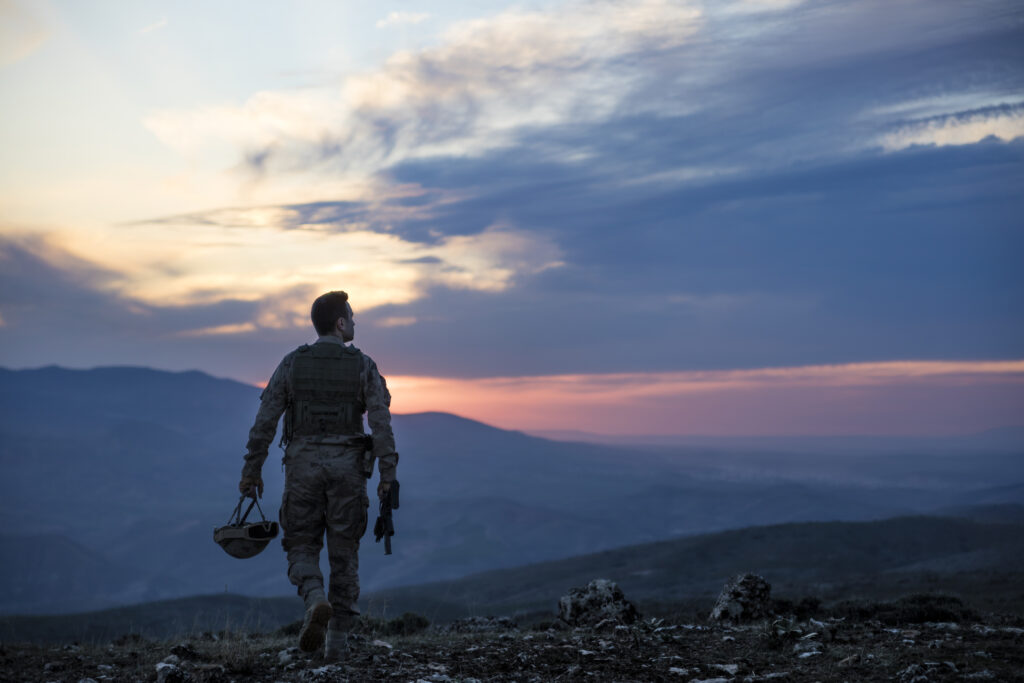Veterans and Depression

Feelings of sadness, loss of interest in activities people once enjoyed, isolation from others and low energy may be signs of depression. In some cases, depression can cause the affected individual to feel hopeless about the future and even contemplate suicide.
Depression can affect anyone. No individual — regardless of age, gender, racial/ethnic background, religion or socioeconomic status — is immune to mental health problems. There’s no specific cause or trigger for developing depression, either. Depression can occur for a variety of reasons or result from a combination of factors.
In the United States, major depression is one of the most common mental health disorders overall. In the year 2020 alone, 21 million U.S. adults, or 8.4% of the population, experienced at least one major depressive episode.
Experiencing a stressful life event, such as a job loss, divorce, illness or loss of a loved one may contribute to an individual developing depression. Change can be difficult, and adjusting to new circumstances outside of one’s control can certainly impact mental health.
For individuals who have served in the military, deployment as well as readjusting to civilian life post-deployment are examples of stressful life events unique to veterans that could set off post-military depression. In addition, moral injury and/or trauma stemming from experiences during combat could lead to depression.
Depression can disrupt an individual’s physical health, family and social life, career and daily functioning. Fortunately, with professional treatment, it’s possible to recover from depression and lead a happy, healthy life.
Prevalence of depression in veterans
Studies have shown that overall, veterans are no more likely to develop major depression than civilians. However, regardless of military status, depression is a common condition and can have harmful, even fatal, consequences without proper treatment. Additionally, veterans are more susceptible than the average person to other mental health issues that can co-occur with depression, including substance use.
It’s important for veterans and their loved ones to keep an eye on their mental health and seek professional help if they begin to experience troubling symptoms. However, it’s also important to note that not all veterans who experience trauma during their service or who struggle with substance use will develop depression.
Rates of depression by war
A study examining data on 7,000 men aged 50 or older actually found that veterans in this group were no more likely than non-veterans to suffer from depression.
These findings were surprising because veterans, especially those who have served in combat, have presumably experienced more stress and trauma in their lives than their civilian counterparts. For this reason, the researchers expected to see higher rates of depression but found that the opposite was true.
Older veterans reported less depression than non-veterans of the same age. However, this may be in part due to cultural and social factors. Soldiers are trained not to show emotion or weakness, and older generations may be more hesitant to admit having depression and/or seeking professional help. These factors may also contribute to the fact that reports of depression and other mental health conditions among veterans vary by war era.
Vietnam and Korean war veterans
Vietnam Veterans were twice as likely to have elevated depression and anxiety than World War II or Korean War Veterans in the study. Further research is required to drill down into the reasoning behind this data.
Iraq and Afghanistan veterans
A study found higher rates of disability in Iraq and Afghanistan veterans who had a combination of depression, PTSD and traumatic brain injury, which the researchers called “the deployment trauma factor.” Individuals with these three conditions were more likely to struggle with difficulties in getting around, communicating and relationships, self-care, and other daily tasks.
Veterans’ mental health support
Because of their experiences during combat, active duty and military life, veterans face unique mental health challenges that not all counselors, therapists and other professionals will be able to understand. At Pyramid Military Therapy & Recovery Programs, our treatment curriculum is designed specifically for the veteran population to address underlying trauma and moral injury, built on a foundation of extensive research into the best methods and approaches to support veterans with mental health and substance use disorders.
Reach out today to learn more.



